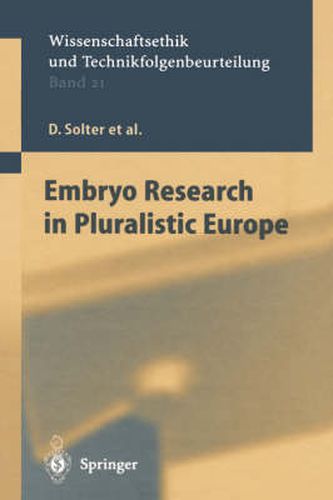Readings Newsletter
Become a Readings Member to make your shopping experience even easier.
Sign in or sign up for free!
You’re not far away from qualifying for FREE standard shipping within Australia
You’ve qualified for FREE standard shipping within Australia
The cart is loading…






This title is printed to order. This book may have been self-published. If so, we cannot guarantee the quality of the content. In the main most books will have gone through the editing process however some may not. We therefore suggest that you be aware of this before ordering this book. If in doubt check either the author or publisher’s details as we are unable to accept any returns unless they are faulty. Please contact us if you have any questions.
Recent advances in techniques and understanding in the fields of genetics, embryology and reproductive biology have opened up new ways to treat a wide range of medical problems. They range from new options for infertility treatment and pre-implantation genetic diagnosis to stem-cell-based therapies for debilitating diseases. Since all these approaches involve the manipulation of human gametes, embryos or embryonic cells, and could also permit more contentious uses, they have stimulated a controversial debate as to what aims are desirable and to what extent experiments on human embryos are morally permissible, if permissible at all. The situation is further complicated by the fact that scientific projects are increasingly realized through international co-operation and that patients are increasingly ready to seek morally contentious medical treatment wherever it is available and thus to bypass national legislation. In view of this situation the Europaische Akademie assembled a temporary interdisciplinary project group in which scientists from universities and non-university research organizations in Europe working on the relevant subjects were brought together and charged with estab
$9.00 standard shipping within Australia
FREE standard shipping within Australia for orders over $100.00
Express & International shipping calculated at checkout
This title is printed to order. This book may have been self-published. If so, we cannot guarantee the quality of the content. In the main most books will have gone through the editing process however some may not. We therefore suggest that you be aware of this before ordering this book. If in doubt check either the author or publisher’s details as we are unable to accept any returns unless they are faulty. Please contact us if you have any questions.
Recent advances in techniques and understanding in the fields of genetics, embryology and reproductive biology have opened up new ways to treat a wide range of medical problems. They range from new options for infertility treatment and pre-implantation genetic diagnosis to stem-cell-based therapies for debilitating diseases. Since all these approaches involve the manipulation of human gametes, embryos or embryonic cells, and could also permit more contentious uses, they have stimulated a controversial debate as to what aims are desirable and to what extent experiments on human embryos are morally permissible, if permissible at all. The situation is further complicated by the fact that scientific projects are increasingly realized through international co-operation and that patients are increasingly ready to seek morally contentious medical treatment wherever it is available and thus to bypass national legislation. In view of this situation the Europaische Akademie assembled a temporary interdisciplinary project group in which scientists from universities and non-university research organizations in Europe working on the relevant subjects were brought together and charged with estab